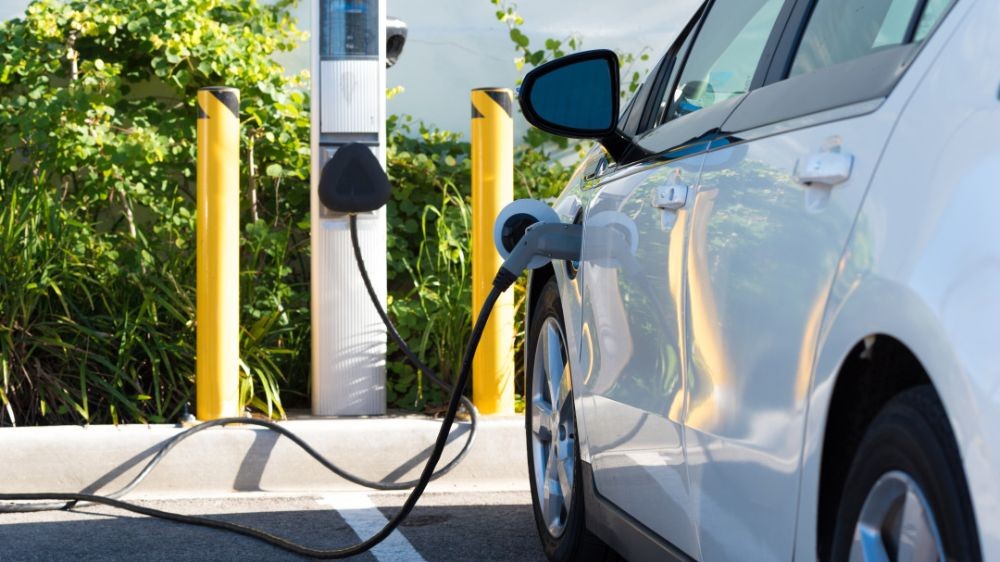
Electrifying Tomorrow: Navigating Current Surge And Future Horizons Of EVs In India
In recent years, the global automotive industry has witnessed a shift with the increasing adoption of electric vehicles (EVs). India, with its ambitious targets to reduce carbon emissions and combat climate change, is actively embracing this transformation. Through this article, we will delve into the current trends and future plans of the electric vehicle sector in India, exploring the latest technologies that are driving this evolution.
The Indian government has played a pivotal role in promoting electric vehicles through various policy initiatives and incentives. Schemes like the Faster Adoption and Manufacturing of Hybrid and Electric Vehicles (FAME) have provided subsidies for both manufacturers and consumers, making EVs more accessible and affordable.
Charging infrastructure is a critical factor for the widespread adoption of electric vehicles. In India, there has been a concerted effort to expand the charging network. Public charging stations are being set up in major cities, along highways, and in public spaces to alleviate range anxiety and encourage EV usage.
Automotive manufacturers are forging partnerships and collaborations to accelerate the development and deployment of electric vehicles. Domestic companies are teaming up with international players to leverage their expertise in EV technology. Such collaborations are not only fostering innovation but also enhancing the overall competitiveness of the Indian EV market.
The electric vehicle market in India is witnessing a surge in diverse product offerings. From electric two-wheelers to buses and cars, manufacturers are catering to a broad spectrum of consumers. This diversification is crucial in appealing to different segments of the population and ensuring a more widespread adoption of electric vehicles.
Battery And Technology
The heart of any electric vehicle is its battery, and advancements in battery technology have been a game-changer. The industry is witnessing a shift towards lithium-ion batteries with higher energy density, longer life cycles, and faster charging capabilities. Solid-state batteries are also on the horizon, promising even greater efficiency and safety.
The integration of smart technology in electric vehicles is becoming increasingly prevalent. Connected EVs offer features like remote monitoring, over-the-air updates, and real-time data analytics. This not only enhances user experience but also contributes to the overall efficiency and sustainability of the electric vehicle ecosystem.
Speaking to Opportunity India, Jayapradeep Vasudevan, CBO, Raptee said that The future of battery electric vehicles (BEVs) appears to be quite promising, as evidenced by the European Union's decision to ban the sale of new gasoline-powered vehicles starting in 2035. Several states in the United States have also implemented similar bans, with the goal of phasing out gas-powered vehicles entirely by 2050.
He said that the surge in demand for BEVs is driving innovation in battery technology, researchers around the world are working to develop batteries with greater capacity, faster charging times, and lower costs. The goal is to create more affordable batteries that can store large amounts of energy for grid applications and enable EVs to travel much longer distances on a single charge.
“One promising development is the emergence of solid-state batteries which have the potential to store more energy in a smaller space than conventional lithium-ion batteries. They could significantly improve the range of EVs and are expected to be more durable and have a longer lifespan than lithium-ion batteries,” Jayapradeep told Opportunity India.
Overall, the future of electrified vehicles is bright. HEVs, PHEVs, and FCEVs are all becoming more efficient, affordable, and attractive to consumers. As government policies continue to support the adoption of electrified vehicles, we can expect to see them play a major role in the future of transportation, he added.
The Indian government has set ambitious targets for the mass adoption of electric vehicles. With a focus on reducing vehicular pollution and promoting sustainable transportation, there are plans to transition a significant percentage of the country's vehicle fleet to electric by a specified timeline.
Research and development investments in the electric vehicle sector are expected to soar. Both public and private entities are likely to allocate substantial resources to drive innovation, improve existing technologies, and develop new solutions to overcome the challenges associated with electric vehicle adoption.
The future of electric vehicles in India is closely tied to the integration of renewable energy sources. The development of a robust charging infrastructure powered by green energy will not only reduce the carbon footprint of EVs but also contribute to the overall sustainability of the transportation sector.
Trends And Future Plans Of Industry
While speaking about the trends and future of the electric vehicle sector in India, Jayapradeep said that the automotive industry is undergoing a rapid shift towards electric vehicles (EVs), with major automakers expected to contribute over 70 per cent of global EV production by 2030. This acceleration is fuelled by advancements in rapid charging and smart charging technologies, which have significantly improved EV convenience and practicality.
The future of EVs is further intertwined with the Internet of Things (IoT), with integrations expected to extend beyond the premium segment and encompass service-level applications. AI and IoT technologies are also gaining traction within the EV industry, offering valuable insights into rider behaviour and commute patterns. By harnessing the power of these technologies, EV manufacturers can optimize charging cycles, enhance user experience, and pave the way for a more connected and efficient EV ecosystem.
Vijaya Kumar, MD & CEO, Lectrix said that India's economic growth has been closely paralleled by the expansion of its two-wheeler market. As a leading manufacturer, we're at the forefront of this dynamic sector, particularly in electric mobility. E-mobility offers consumers numerous advantages, including cost-effectiveness, environmental friendliness, and overall ownership savings.
The e-scooter segment, currently at 5 per cent market share, holds immense potential, with a critical price point of around 1 lakh rupees. A high-quality e-scooter, lasting 7-10 years, will dominate this segment. Today's Indian consumers seek reliable, safe, and affordable products, and as technology advances, concerns like range anxiety will diminish.
The electric vehicle (EV) battery sector is experiencing significant advancements, transforming India's automotive industry. The focus on sustainable transportation has driven innovations in lithium-ion technology, with ongoing research dedicated to enhancing energy density, minimizing charging durations, and extending battery life.
He said a significant shift towards localized battery manufacturing aligns with India's 'Make in India' initiative, fostering cost efficiency. The exploration of solid-state batteries introduces safer and more energy-dense alternatives, with potential cost benefits. Collaborations between Indian automakers and global battery manufacturers highlight a shared commitment to staying at the forefront of EV technology.
Meanwhile Ayush Lohia, CEO, Lohia Industries said that as governments worldwide emphasize sustainable transportation, EVs are poised for substantial growth, reshaping the automotive industry and fostering a cleaner, greener future. The future holds exciting prospects for innovation and sustainability.
“EV companies are eagerly anticipating advancements in battery technology, pushing the boundaries of energy density and charging efficiency. The quest for longer-range vehicles and faster charging capabilities remains paramount, coupled with a growing emphasis on eco-friendly materials and manufacturing processes,” Lohia said.
Atul Gupta, Co-founder & Director, e-Sprinto said that in the dynamic landscape of the EVs market in India, several trends are shaping the industry’s trajectory. Artificial Intelligence (AI) and the Internet of Things (IoT) play pivotal roles in enhancing EV capabilities, optimizing performance, and facilitating intelligent charging solutions.
Another notable trend involves the emergence of Non-Lithium-Ion Battery-Powered Vehicles, showcasing advancements beyond traditional battery technologies. Personal Mobility Devices (PMDs) are gaining prominence as affordable last-mile solutions. Additionally, Smart Charging stands out, enabling communication between vehicles and the grid for optimized energy consumption, offering the flexibility to choose renewable energy sources, thereby reducing CO2 emissions and energy costs," he added.
"Energy Storage Innovations, such as solid-state batteries, contribute to extended EV range, while Vehicle-to-Grid (V2G) Integration allows EVs to feed excess energy back into the grid. Sustainable Materials and Manufacturing Practices focus on eco-friendly production, and collaborations and partnerships within the automotive and technology sectors foster synergies for accelerated development, ensuring a robust and interconnected future for electric mobility in India," he said.
Abhinav Kalia, CEO & Co-founder, ARC Electric said that the market is in the midst of a remarkable evolution, witnessing pivotal trends set to redefine its landscape. Notably, advancements in battery technology, particularly the rise of lithium-ion batteries, are extending the range and enhancing efficiency. The integration of smart features and connectivity is reshaping the driving experience.
"The industry is also adapting to diverse consumer demands with the proliferation of electric SUVs and crossovers. As governments globally prioritize sustainable initiatives, the EV market is primed for accelerated growth. The future holds a dynamic and eco-conscious automotive landscape, driven by innovation and a collective commitment to environmental responsibility," he said.
Meanwhile, MS Chugh, Founder & Chairman, Aponyx Electric Vehicles said, "I am thrilled to witness the transformative trends that are unfolding in the EV market. EVs present an eco-friendly and cost-effective alternative to traditional vehicles, offering a solution to reduce congestion and pollution. Apart from this battery technology innovations play an important role in the EV market. Advancements in lithium batteries have reduced the cost of EV batteries by 90%. Further, advancements in EV charges and smart grids boost consumer interest. I believe that the rise of electric vehicles is not just a simple trend but a whole revolution in motion. And we at Aponyx envision a future where sustainability and innovation converge seamlessly and drive the EV market to extraordinary heights."
Conclusion:
The electric vehicles in India are not merely a trend but a transformative shift towards a more sustainable and eco-friendly transportation ecosystem. With the government's support, technological advancements, and a growing awareness of environmental issues, the electric vehicle sector in India is poised for substantial growth. The integration of cutting-edge technologies and the commitment to a greener future position India as a key player in the global electric vehicle revolution. As the industry continues to evolve, the landscape of transportation in India is set to undergo a revolutionary change, with electric vehicles at the forefront of this transformation.

